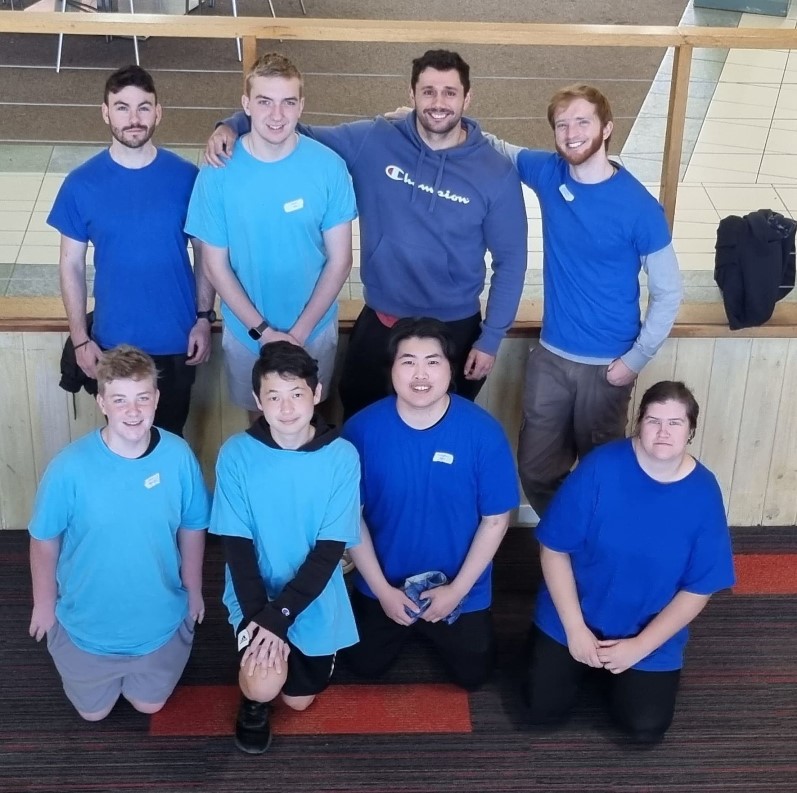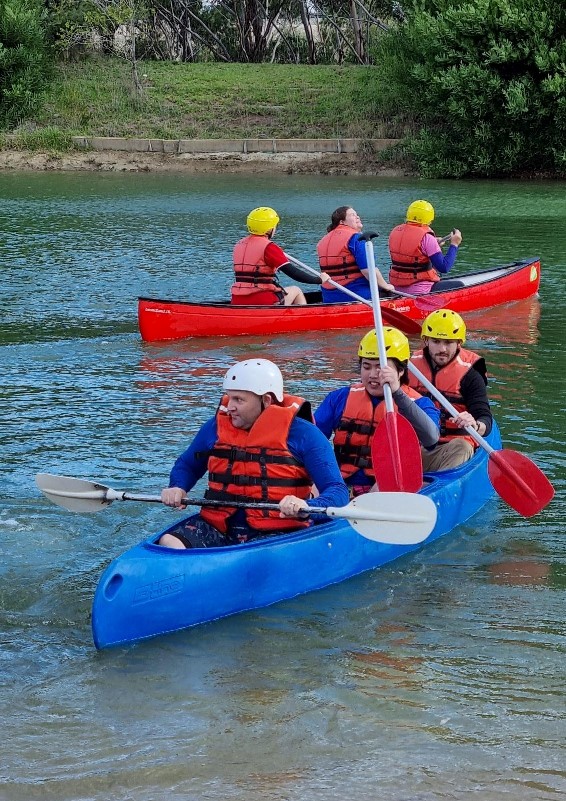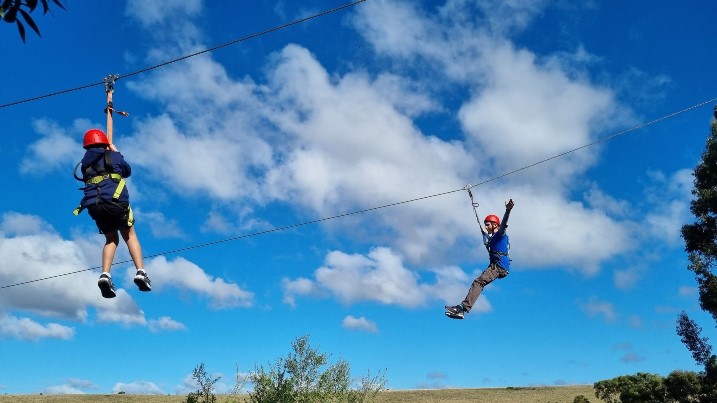Chris spoke to HFA about being a youth leader with his local Haemophilia Foundation, camps, catch-ups and life with haemophilia these days.

My name’s Chris. I am 21 years old and I have severe haemophilia A.
Tell us about you and your bleeding disorder
I am at uni now and also work part-time in hospitality.
I am on prophylaxis treatment and have transitioned to emicizumab from a standard replacement factor therapy. I only have to infuse once a week and it’s not through my veins anymore, it’s through my fatty tissue. I’ve noticed I have less bleeds and no more spontaneous bleeds, which is good!
If I’d had this when I was younger, my life would have been a bit different. I wouldn’t have had to make so many trips to the hospital. My uni work isn’t being interrupted by bleeds so much anymore.
How did you become a youth leader?
I have been a Haemophilia Foundation Victoria youth leader for a few years now. There wasn’t any formal initiation. Tim from Purple Soup approached me at camp and asked me to watch out for some kids on the high ropes who might be a bit scared. I walked them through how to get across the ropes safely and encouraged them.
It started from that and then kept going with later camps. Then the Foundation made youth leaders into a small group – the ‘Blue Shirts’.

We wear blue shirts at Foundation activities to identify us as youth leaders.
What does being a youth leader involve?
We wear blue shirts at Foundation activities to identify us as youth leaders. While you are at camp and wearing the blue shirt, you need to take on certain responsibilities to help out where you can. That might entail looking after the kids at camp, or setting up activities, or being an assistant to camp staff, for example, explaining how to use a harness.

There’s nothing quite like the camps.
What’s your favourite foundation community activity?
There’s nothing quite like the camps. They are almost like a support group. You go along and you don’t feel so alone. It can be very isolating sometimes, especially if you don’t talk to many people who have a similar bleeding disorder to you. At camp you are with people with the same experiences and can share how you have dealt with particular situations.
Recently we haven’t been able to have many catch-ups because of COVID, but we are planning to do more. We try to do team-bonding experiences, like doing an Amazing Race around the city, or just hang out together and catch up.
How do you think the youth leader program helps young people in your community?
I hope the program inspires young people to encourage and support each other and to reflect on how they approach life – could it be better? Could they be more patient with others? I guess we lead by example.
What are the personal benefits for you?
The Blue Shirts program has taught me how to be a team player and to be more optimistic. It’s also very rewarding – for example, seeing someone getting ready for the flying fox for the first time who is very scared, and then they eventually do it. You feel a sense of pride and happiness in what’s achieved.

It’s very rewarding seeing someone getting ready for the flying fox for the first time who is very scared, and then they eventually do it.
We strive to develop and improve our leadership qualities – and they are also good for my resume!
What are you up to these days?
I am studying interior design and architecture at uni full-time. I also work as a waiter, which involves a lot of walking and going up and down the stairs.
I do love my video games and I like to read comics. I have been doing a lot of swimming as well, which helps me to recover from a leg injury from a couple of years ago.
READ MORE
Want to know more about camps or other youth activities? Speak to your local Haemophilia Foundation.
And check out the personal stories from youth leaders about camps on:
- Factored In, the HFA youth website – www.factoredin.org.au
- The HFA YouTube channel
Photos supplied by Chris and Haemophilia Foundation Victoria and reproduced with permission


